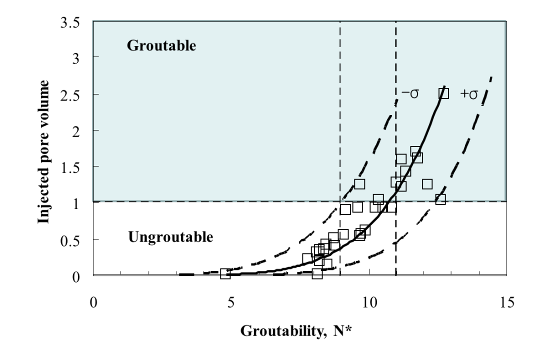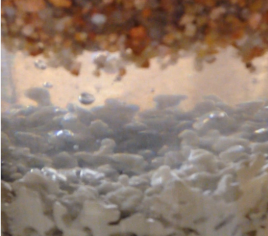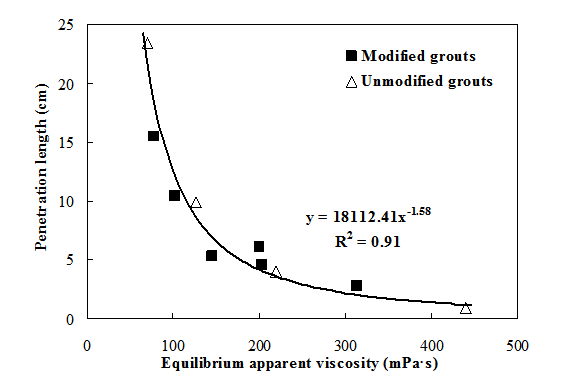


|
Suspension Flow through Porous Media |
|
Image on the left: suspension flow through transparent soils. |
|
Project Team Members |


|
Chadi El Mohtar, Ph.D. |
|
Assistant Professor |
|
Note: Information, pictures and Links to papers provided on this page are copyrighted and all rights therein are retained by authors or by other copyright holders. All persons accessing this information should adhere to the terms and constraints invoked by each author's copyright. These works may not be reposted without the explicit permission of the copyright holder.
Grouting, particularly, permeation grouting, can be a very cost-effective solution for significant infrastructure challenges and ground improvements. The use of grouting is becoming increasingly important as existing dams and levees, and other aging infrastructure, are upgraded to meet new performance design criteria. The current state of practice in grout, however, relies heavily on the field operation experience, whereas the science behind grout flow is not well understood from a fundamental perspective. The main goal of this research is to develop new grouting models that can transform grouting from its current state of practice to more scientifically-based engineering design. Such models will account for the effects of the rheological and filtration properties of suspensions on their flow through heterogeneous granular media.
For this research, groutability of granular soils using sodium pyrophosphate (SPP) modified bentonite suspensions was studied to investigate its applicability in permeation grouting. While the relative grain size of the soil and the grout has been widely used to evaluate the groutability of granular soils with particulate grouts, such criteria do not account for the effect of the suspension concentration as well as chemical modifications of grouts. The modification of grouts may improve the depth of its penetration, and thus changing the groutability of the granular soils. For such cases, the rheological properties of grouts become crucial to evaluate groutability of soils. The modified bentonite suspensions were injected into the saturated sand columns prepared at various experimental conditions (effective particle size, relative density, and fines content) under two different constant pressures (35 and 140 kPa). The results showed that the injected pore volumes and injection length increased with an increase of the apparent viscosity at equilibrium. |
|
Relevant Referred Publications
1. Yoon, J. and El Mohtar, C. S. "Groutability of granular soils using sodium pyrophosphate modified bentonite suspensions" Tunneling and Underground Construction Journal, Vol. 37 p.p. 135-145, August, 2013. [PDF] 2. Yoon, J. and El Mohtar, C. S. "Groutability of Granular Soils using Bentonite Grout based on Filtration Model" Transport in Porous Media. Volume 102, Issue 3 (2014), Page 365-385. [PDF] |

|
Once the bentonite is delivered into the porous medium, its persistence within the pore space determines the long term performance of the grouting. The mechanisms governing the stability of the grouts in the pores is a major aspect of the current research. The insitu stability of bentonite grout in permeated sands under different groundwater conditions is investigated by studying the hydraulic conductivity of permeated sand permeated under increasing hydraulic gradients; when washing out of bentonite occurs, the hydraulic conductivity increases. The specimens are then subjected to a decreasing gradient test to verify that the changes in measured hydraulic conductivity results are due to washing out (as compared to non-Darcian flow effects due to the high gradients). |

